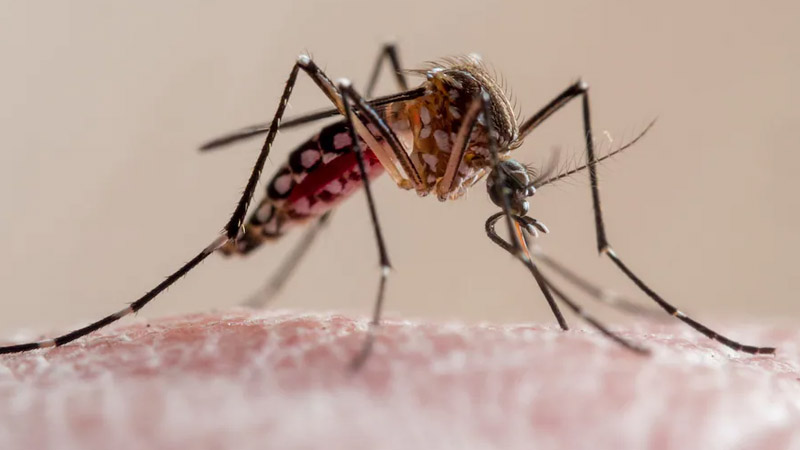Dengue fever, a potentially deadly mosquito-borne illness, is having a moment. The “break-bone fever” is sweeping Asia and South America, and it is now making its way closer to home.
The stripey ‘Asian tiger mosquito has already been spotted or established in 30 European nations, including Spain, Italy, and Croatia. It’s even spread to the United Kingdom, and some scientists think rising temperatures will allow them to spread in England within a decade.
In short, you should be on alert for dengue fever, if not in the UK right now, then while on vacation in warmer locales. Last year, a British tourist contracted the illness while on vacation in Provence, and in 2016, 21-year-old British tourist Bob Toulson-Burke died of dengue here in Thailand.
I’m not sure where I was bitten by an infected Asian tiger mosquito they’re city-loving insects but I’d just returned from a long weekend in a national park where I’d been torn to pieces. It wasn’t until the following Friday that I started to feel uncomfortable.
But, not wanting to miss Bangkok’s strange Songkran (Thai New Year) celebrations, where the whole city rushes onto the streets for the world’s greatest water battle, I pulled myself out of the flat and onto the streets. Thousands of adults and children doused each other with ice-cold water, a welcome relief from the city’s restrictive heat.
Or, at least, it should have been. Despite the fact that the temperature was in the upper 30s, I couldn’t stop shivering. Friends sent me home when my lips became blue. I climbed into bed and spent most of the following 36 hours there. I was suddenly exhausted, nauseous, and lacked appetite, reported the Telegraph
By Monday afternoon, the temperature had subsided sufficiently for me to put on makeup and join my team’s weekly video chat. It didn’t quite work. After that, my editor called to inform me I “looked like s**t” Did I have dengue, and was it really a good idea to go to northern Thailand for a job the next day?
The idea was not ridiculous. The virus is now prevalent in over 100 countries, up from nine in the 1970s, putting more than half of the global population, including Southeast Asia, where I reside. Thailand, Malaysia, and Singapore all warned in January that “massive outbreaks” of dengue might occur in 2023, owing in part to the circulating serotypes.
There are four strains of the virus, and having one does not protect you from the others. Indeed, earlier exposure to a different strain may worsen an illness, raising the chance of hospitalization or death. This year, hitherto unknown strains are spreading in South and Southeast Asia, suggesting that immunity levels are low.
But I still didn’t get it. I took paracetamol and boarded my 7 a.m. flight. This was partially because I wouldn’t identify the aches I was having as “bone breaking,” which was the virus’s signature symptom, which I’d written a dozen times or more. At this stage in my dengue cycle, my joints ached so little that I assumed I had a severe cold.
It had also taken some time to put together the logistics for the interview I’d scheduled in Yasothon province, and the hassle of postponing the brief trip to the northeast felt more difficult than just getting on with it. In retrospect, that wasn’t the best decision I could have made.
Aside from the interview, the only memory I have of the trip is an embarrassing event when, despite my frazzled head, I attempted to ask for a banana in a Seven-11 store. I left with the fruit but lost my dignity after a moment of confusion when a startled store worker pointed at the condoms. It turns out the Thai term for ‘banana’ is akin to ‘d**k’.
I was exhausted by the time I returned from Bangkok and eventually took time off after another tense team video chat. Thankfully, the infection was not severe. I was a frail, overtired mess who was enraged that my mind wouldn’t operate, but it might have been far worse.
Every year, around 500,000 people are hospitalized with severe dengue, a combination of terrible symptoms that can occur after the fever has subsided, including shock syndrome and intestinal bleeding. This can be fatal; the virus kills between 20,000 and 40,000 people each year.

